Officer Acquitted of Killing 19-Year-Old Protester in Iran

The security officer who fatally shot 19-year-old protester Sepehr Beiranvand in 2022, has been acquitted of the murder charge.

The security officer who fatally shot 19-year-old protester Sepehr Beiranvand in 2022, has been acquitted of the murder charge.
"The plain clothes officer who fatally shot this teenager in the neck before bystanders was acquitted of the charge of intentional homicide by the central province court after one year and eight months," a person close to Beiranvand's family told Iran International.
According to this source, in June 2023, the officer was formally accused of deliberate homicide in an indictment issued by the Lorestan Military Court.
He added, "Following the case referral to the Supreme Court for confirmation of the punishment, the judges ordered a reexamination of the evidence by experts familiar with the case."
Beiranvand was writing slogans on a street in Khorramabad, in western Iran, when plainclothes officers noticed him. He attempted to escape by climbing a municipal gas pipe, but he was shot in the neck and died as a result.
According to the source, after Biranvand's death, the government insisted on holding a funeral without any relatives present before releasing his body. They also demanded money from his family to send experts to investigate the case. Witnesses to Beiranvand's killing emphasized that he was unarmed and just writing slogans when he was identified and shot.
The nationwide protests of 2022, known as the Woman Life Freedom movement, were sparked by the death of 22-year-old Mahsa Amini while in the custody of the morality police. The protests resulted in the deaths of over 550 protesters, including minors.
After a thorough investigation spanning 18 months, a UN fact-finding mission in March issued its report, determining that the Iranian government bears responsibility for the "physical violence" leading to the death of Amini.
According to the report, the regime perpetrated extensive and persistent human rights violations that contravened international laws, disproportionately affecting women, girls, children, and members of ethnic and religious minorities during the protests.

The Australian Iranian Community Alliance (AICA) has called on the Australian government to designate the Islamic Revolutionary Guard Corps (IRGC) as a terrorist organization.
The appeal, addressed to Prime Minister Anthony Albanese, Foreign Minister Penny Wong, and Attorney General Mark Dreyfus, was published on Tuesday, in the wake of Canada's recent designation.
AICA, which consists of 26 organizations and groups in Australia, made the call in response to a letter from the Australia-Iran Friendship Association that protested Canada's designation of the IRGC as a terrorist organization.
The AICA said the group is a supporter of the IRGC and the Islamic Republic and urged the Australian government to recognize the true nature of the IRGC and align with international allies to take a firm stance against activities that threaten global security.
The US designated the IRGC in 2019 and last year, the UK said Iran was among the country's number one foreign threats, though has not yet designated the group, in spite of calls from lawmakers.
In their letter of appeal, the AICA stated, "We write to express deep concerns regarding assertions recently made in an open letter that argues against the designation of the Islamic Revolutionary Guard Corps (IRGC) as a terrorist organization. This letter underplays the documented history and ongoing actions of the IRGC that unequivocally undermine global peace and security."
Dozens of plots against Iranian dissidents and Jewish and Israeli targets have been unveiled in the last two years, hatched by the IRGC, in countries spanning the globe.
AICA highlighted the IRGC's involvement in international terrorism, including bombings, rocket attacks on bases in Iraq, and the downing of civilian airliner PS752. They criticized the claim that the designation would serve foreign agendas, noting that many countries, including the European Union and the United States, have recognized parts or all of the IRGC as a terrorist entity.
Individuals such as dissident journalist Mahsi Alinejad and members of Iran International's news team have also been targets of plots to kill and abduct Iranians abroad.
The letter also condemned the friendship group's suggestion that such a designation would impact votes within Muslim constituencies in Australia, describing it as a manipulative tactic resembling hostage diplomacy.
The AICA asserted that Australian policy should be guided by facts and a commitment to national and international security, rather than speculative electoral implications.
The Australian Department of Foreign Affairs on Friday told Iran International that the current framework within Australia's Criminal Code does not allow for the listing of the IRGC as a terrorist organization. Several states claim that as a state body, designation is legally fraught.
However, they noted that the government has imposed targeted financial sanctions on more than 80 IRGC-linked individuals and entities since Iran's violent suppression of protests in September 2022.
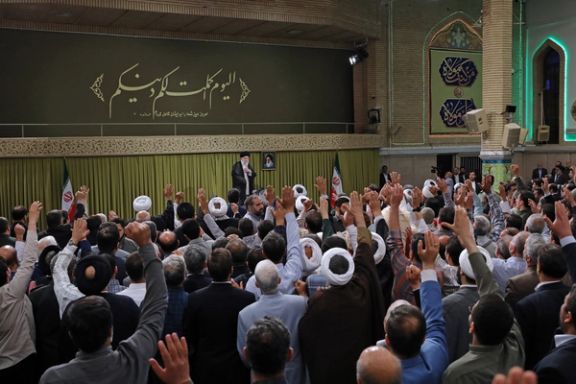
Iran’s Supreme Leader Ali Khamenei says high voter turnout in Friday's presidential election is crucial for the survival of the Islamic Republic, amid what many have long described as a crisis of legitimacy of the ruling establishment.
“We place great importance on high participation because the most significant effect of high participation is the honor of the Islamic Republic,” Khamenei stated in a speech on Tuesday.
In what some experts said was an attempt to rally Iranians behind the regime's rhetoric of 'foreign enemies', he said, “The Islamic Republic has enemies. One of the things that can defeat these enemies is the election. If high participation of the people is observed in this election, it will be a source of honor for the Islamic Republic.”
A recent poll by the Netherlands-based Gamaan Institute suggest that at least two thirds of eligible Iranian voters have decided to abstain from casting a ballot.
In the 2021 presidential election in Iran, the voter turnout was notably low, recorded at around 48.8%, which was the lowest in the history of the Islamic Republic's presidential elections.
The upcoming election is expected to face similar challenges, with projections of low turnout due to increasing social repression and the ongoing economic crisis facing the country.
The country's snap presidential election is set to be held on June 28 following the sudden death of Ebrahim Raisi in a helicopter crash last month.
Khamenei’s speech, delivered on Eid al-Ghadir—a significant Shiite Islamic holiday—emphasized the connection between religious duty and civic participation. Many observers noted that this was a transparent attempt to reinforce Tehran’s faltering legitimacy amid increasing internal and external pressures. He asserted, "Iran's strength does not lie in possessing an array of missiles, but fundamentally in the active participation of its citizens in the electoral process."
Additionally, Khamenei subtly indicated his favored presidential candidate by firmly rejecting any negotiations with the United States. He stated, "Some of our politicians believe they must align themselves with one power or another, or that the path to progress necessarily leads through the US; this is a grave misconception. Those who look beyond our borders fail to recognize and value our inherent capacities; naturally, they lack the vision to utilize them."
This stance would potentially appear to disqualify three of the six approved presidential candidates, including Mohammad Bagher Ghalibaf, Mostafa Pourmohammadi, and Masoud Pezeshkian. Pezeshkian, in particular, is seen as disadvantaged due to his association with former Foreign Minister Mohammad Javad Zarif, the so-called architect of the 2015 nuclear deal (JCPOA), who advocates for dialogue with other countries, including the US, to lift current sanctions.
Khamenei's speech also suggested the Supreme Leader’s ongoing efforts to “purify” the political landscape by narrowing down the circle of trusted regime insiders. He even urged the future president to vow, "Make a solemn pledge before God that you will refrain from appointing individuals and agents who deviate even slightly from the revolutionary path.
Despite mounting criticism of the country’s isolationist foreign policy, Khamenei appeared steadfast in his "Looking East" strategy, emphasizing relations with China and Russia over the West. He attempted to deflect any criticism saying, "Contrary to popular misconceptions, we are not pursuing isolation or severing our global ties. Except for a few nations, we are open to fostering connections with the broader international community."
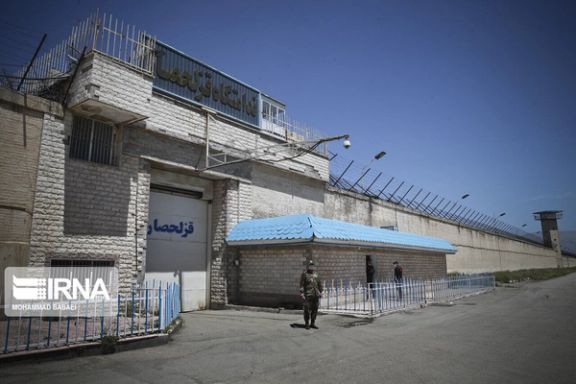
Dissident Ahmadreza Haeri has written a letter from prison, urging Iranians to boycott the upcoming presidential election, arguing that participation legitimizes those who have stripped the Iranian people of their freedom.
In the letter, a copy of which was obtained by Iran International, the political prisoner asserts that Iranians now recognize the ruling power in the Islamic Republic seeks votes "only as a decoration for its authoritarian religious regime," with the president serving merely as a "facilitator for implementing orders."
Haeri is currently jailed in Ghezel Hesar Prison in the city of Karaj, serving a three-year, eight-month sentence. He received an additional prison sentence of about three months last July for his human rights activities during imprisonment.
A special election will be held on June 28 to replace former President Ebrahim Raisi, who died in a helicopter crash in May. Six candidates, who have been handpicked by the Islamic Republic's Guardian Council, are vying to replace Raisi.
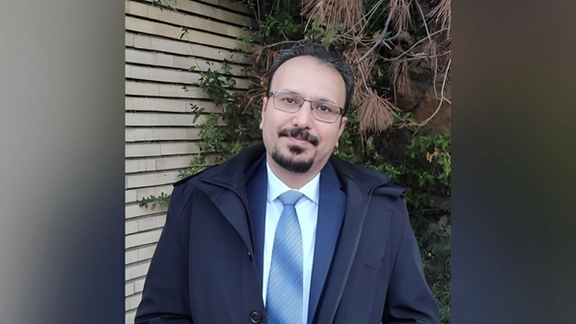
In his letter, Haeri pointed to the decline in electoral legitimacy and public support for the current regime, referring to the record-low voter turnout in the recent parliamentary and Assembly of Experts elections. According to the state news outlet IRNA, about 25 million of Iran's 61 million eligible voters cast their ballots.
"The grandeur of this massive non-violent struggle for the right to self-determination has permanently changed the political landscape of the country," Haeri wrote.
Haeri emphasized that from 1997 to 2017, the “oppressed people of Iran” went to the polls out of fear and desperation to bring about change, but their participation yielded no lasting benefits.
According to a new survey, conducted by the Netherlands-based Gamaan Institute, 22% of respondents in Iran confirmed they would definitely vote, while 12% remain undecided.
The survey highlighted deep-seated dissatisfaction with the current political system, with roughly 68% of respondents citing "opposition to the overall system of the Islamic Republic" as their primary reason for not voting. Other notable reasons included "the limited power of the president".
Voter participation has been on a steady decline in Iran, with over 50% of eligible voters staying home for the election of now-deceased President Raisi in 2021. That election saw about 3.7 million invalid ballots cast, that were likely to have been mostly blank or protest votes.
Meanwhile, hundreds of teachers, union activists, and prominent cultural figures in Iran have publicly announced their decision to abstain from voting in the upcoming presidential elections. They assert that participation is futile and risks legitimizing the government while intensifying the suppression of dissent.
Haeri was released from Greater Tehran Prison in October 2020 after serving a previous sentence and receiving 74 lashes. In December last year, he was handed arbitrary new charges for writing letters against the death penalty, sham elections, and violations of fair trial rights for prisoners, and spent time in solitary confinement in June.
Other prisoners who have spoken out against participation in the upcoming elections include Nobel-laureate Narges Mohammadi and Golrokh Iraee.
Mohammadi wrote from Tehran’s Evin Prison that she would not participate in the "illegal elections of the oppressive and illegitimate government." Iraee criticized the factions of the so-called reformists for encouraging participation, calling it a betrayal, writing that "Reformists should know that we, the people of Iran, remember their betrayal from the beginning and will not forget."
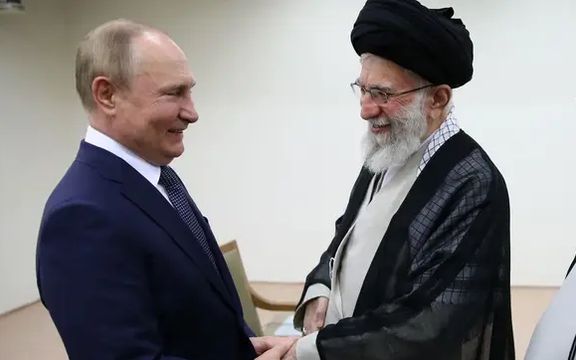
Moscow expects to sign a new agreement on comprehensive cooperation with Iran "in the very near future," a top Russian official said on Tuesday despite earlier reports of possible delays.
"We expect that this agreement will be signed in the very near future, since work on the text is already close to completion. All the necessary wording has been found," RIA cited Deputy Russian Foreign Minister Andrei Rudenko as saying in an interview.
Earlier in June, Russia's foreign ministry said that work on the agreement was temporarily suspended, while Iran said there was no break in preparing the new pact. Zamir Kabulov, a Russian foreign ministry official, was cited as stating on June 11 that "This is a strategic decision made by the leadership of both countries. The process has halted due to issues faced by our Iranian partners."
Later, both Iranian and Russian officials issued statements reiterating that work to finalize the agreement was in progress and reports about its suspension were exaggerated.
The Islamic Republic of Iran and Russia are strategic adversaries of the United States and their cooperation reached a new level in 2022 when Iran began supplying hundreds of suicide drones to Moscow to attack civilian and infrastructure targets in Ukraine. Reports have also emerged indicating possible ballistic missile deliveries.
Europe and the United States have warned Tehran against further military cooperation with Moscow, sanctioning dozens of individuals and companies involved in weapons deliveries.
Tehran and Moscow initially signed a long-term agreement in March 2001. Officially known as the Treaty of the Foundation of Mutual Relations and the Principles of Cooperation between the Islamic Republic of Iran and the Russian Federation Act, it was initially set for ten years but was extended twice for five-year terms.
According to Iran’s ambassador to Russia, the countries agreed to extend the agreement for another five years in 2021, setting its expiration date in 2026.
In 2023, reports of possible difficulties in developing the new agreement with Russia, resulting from protests from Iran in response to a joint statement issued following the Russia-GCC Strategic Dialogue, were made.
In particular, the disagreement concerns one point in the GCC joint statement, from July 2023, which Iranian officials believe reflects Moscow's solidarity with the UAE's position on the territorial dispute regarding three islands in the Persian Gulf that Tehran considers to be its territory. Moscow's explanations were unsatisfactory to the Iranian side.
The 2001 pact called, among others, for cooperation in security, energy projects, including the peaceful use of nuclear energy and the construction of nuclear power plants, industry and technology, according to its text published on the Kremlin's website.
Very few details have emerged on what the new agreement would include. After Russia launched its full-scale invasion on Ukraine in 2022 and subsequent sanctions on Moscow by Kyiv's allies, Russia and Iran have firmed investment, military and energy ties.

A helicopter crash on May 19 claimed the lives of Ebrahim Raisi, Iran's eighth President, and his foreign minister, Hossein Amir-Abdollahian, leading to a series of consequential events.
Memorial services organized by the Iranian government globally in their honor, faced significant criticism from opponents of the Islamic Republic, sparking widespread discontent and controversy.
In Washington DC, a staff member of Iran's Interests Section in the US exacerbated tensions. In a video circulated on social media, Ramezan Soltan-Mohammadi was observed making a threatening gesture towards protesters, leading to an extended restraining order against him by a US court on June 17.
This incident, occurred on May 22 on the sideline of Raisi’s memorial service held by the Islamic Education Center (IEC) in Maryland, sparking renewed scrutiny into the ties between this sizeable mosque in Potomac and the Islamic Republic of Iran.
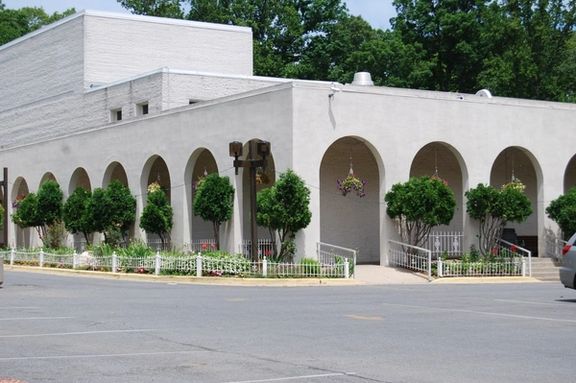
Despite concerted efforts over the years by the administrative staff and board members of IEC to keep a low profile and refrain from drawing undue attention to this prominent Shia center in Montgomery County, the facility has consistently faced accusations from critics who allege it has functioned as a haven for supporters of the Islamic Republic for numerous years.
These allegations against the IEC, which also serves as a mosque, seem firmly grounded in reality.
Federal prosecutors in Manhattan initiated legal action to seize this center in 2009 for its connection to Alavi Foundation, a New York City-based organization accused of illegally providing money and services to Iran and spending millions of dollars to obtain and develop properties in violation of federal laws that ban trade with Iran, the New York Times reported.
IEC managers have endeavored to distance themselves from Alavi and have long asserted that the mosque's association with the foundation is purely that of tenant to landlord.
Furthermore, the management board has opted to enhance the organization's public image by revising its mission statement, asserting that it functions solely as a place of worship and religious center without any political affiliations. Nevertheless, there are compelling facts that contradict these assertions. Since its inception, the leaders and members of this organization have consistently shown fervent support for the Islamic Republic, demonstrating unwavering devotion and admiration for the regime in both rhetoric and actions.
Hosting Raisi’s funeral and several meticulously organized ceremonies directed by authorities in Tehran serve as undeniable examples that underscore the current bond.
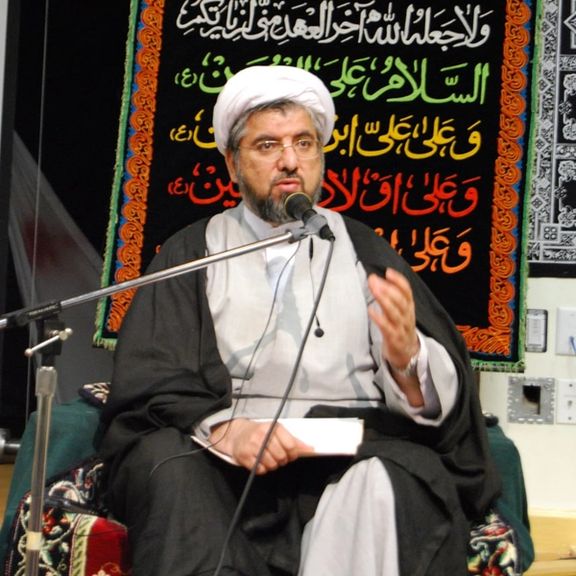
Such is the depth of influence that throughout its operational history, the prayer leader of the center has consistently been appointed by Tehran. The current Imam, Ahmad Bahraini, who has served at the center for approximately two decades, previously held the position of Ali Khamenei's representative at Shahid Beheshti University before relocating to the United States.
His predecessor, Hojatolislam Mohammad-Reza Hejazi, sparked controversy when he was detained at Washington Dulles International Airport in 2005 while trying to depart for Iran with nearly $100,000 in cash, disregarding US tax rules.
The IEC's notable connections to Tehran include hosting prominent figures and clerics closely associated with Iran's power structure. Mohsen Qara'ati, a high-profile clergyman with ties to the regime; Mohammad Kazem Rashed Yazdi, a cleric with personal connections to Ali Khamenei; Mohsen Taj Langaroudi, a prominent loyalist cleric; and Mohsen Taheri, a well-known eulogist affiliated with the Khamenei’s office, have all been hosted by IEC and visited the US at the center's invitation.
According to Iranian International investigations, the IEC has been found to have substantial ties with the Iranian Interest Section (IIS). This section acts as the representative of the Iranian government in the absence of formal diplomatic relations between Washington and Tehran. Our interviews with knowledgeable individuals suggest that certain current or former staff members of this center, as well as their spouses, have been employed by the ISS. Additionally, over the years, the center has frequently organized non-religious activities that align with the objectives of the Islamic Republic.
The authorities of the IEC have shown no willingness to respond to the claims stated.
According to its website, the Islamic Education Center in Washington was founded as a nonprofit organization dedicated to promoting Islam through cultural and religious activities. Despite its location in Potomac, Maryland, the decision to include "Washington" in its name reflects a historical dispute stemming from the 1979 Islamic Revolution in Iran.
The Center was established amid controversy following the expulsion of several of its current members from the prominent mosque of nation’s capital due to their occupation of the premises in 1981. According to the Washington Post, the dispute originated when "about a dozen demonstrators who support Iranian leader Ayatollah Ruhollah Khomeini occupied the mosque."
As reported by the newspaper, the board of the mosque, consisting of ambassadors to the United States from more than 40 Islamic nations, took legal action. Subsequently, a Superior Court judge issued an order for the demonstrators to evacuate the premises. When they declined to comply, some of the zealous supporters of Islamic Republic were charged with criminal contempt.
With sustenance from the Alavi Foundation, followers of Khomeini who were expelled from the Islamic Center of Washington instituted their own sanctuary by acquiring and renovating a sizable facility located in an affluent Maryland area.
The Islamic Center of Washington has displayed no interest in responding to Iran International’s questions regarding the four-decade-old conflict.